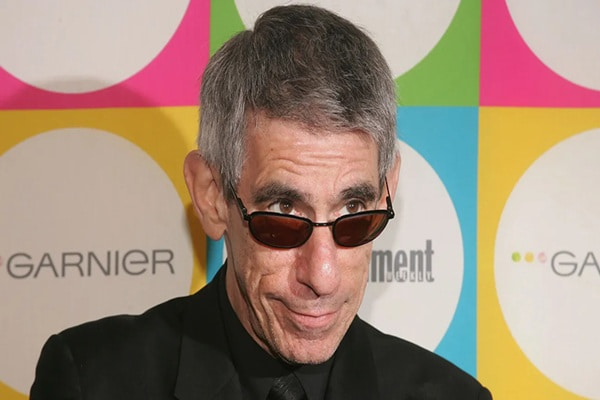
When Richard Belzer passed away in February 2023, the entertainment world lost more than a beloved actor — it lost a true original. Known to millions as Detective John Munch, Belzer wasn’t just a fixture on our TV screens; he was a symbol of persistence, reinvention, and smart career moves.
At the time of his death, his estimated net worth was around $16 million — an impressive fortune for someone who began his career telling jokes in small New York comedy clubs. So how did he do it? Let’s dive into how this witty comedian built a multi-million-dollar empire and left behind a legacy that still earns respect (and royalties) today.
1. Richard Belzer’s $16 Million Net Worth — The Big Picture
When news broke that Belzer’s estate was valued at roughly $16 million, fans were amazed — and curious. Unlike many Hollywood stars who earned their wealth through blockbuster films or massive endorsement deals, Belzer built his fortune quietly and consistently.
Sure, he wasn’t pulling in Mariska Hargitay-level money (she’s reportedly worth about $100 million thanks to her lead role on Law & Order: SVU), but Belzer’s wealth tells a story of smart longevity.
What makes it even more remarkable? His biggest break came late in life. While many actors peak in their 30s, Belzer didn’t truly hit it big until age 49, proving that patience, timing, and persistence can be just as valuable as youth and fame.
2. The Detective John Munch Phenomenon — A Career Goldmine
Detective John Munch wasn’t just a TV character; he was Belzer’s golden ticket. From 1993 to 2016 — a stunning 23-year run — Belzer portrayed Munch across multiple series including Homicide: Life on the Street and Law & Order: SVU.
That’s 447 episodes total. To put that in perspective, most actors dream of a show lasting five seasons. Belzer stretched one role across decades — and multiple TV universes.
-
“Homicide: Life on the Street” — 122 episodes
-
“Law & Order: SVU” — 325 episodes
-
Plus cameos in The X-Files, The Wire, 30 Rock, Arrested Development, and others
Even if we estimate a modest $75,000–$200,000 per episode, that’s a serious payday. Add in residuals (those royalty checks that come in every time SVU airs somewhere in the world), and you start to see how Munch became his personal goldmine.
Belzer didn’t just play a character — he created a brand. Every crossover appearance was another paycheck and another opportunity to cement Munch in pop culture.
3. From Struggling Comic to Television Star
Before television fame, Richard Belzer was grinding it out in smoky comedy clubs across 1970s New York City. He started as a stand-up comedian, performing for tiny crowds and smaller paychecks.
His first real gig came when Saturday Night Live launched in 1975 — Belzer was hired as the warm-up comedian for the show’s very first season. That gig didn’t make him rich, but it gave him invaluable exposure.
Through the 1980s, he appeared in films like Scarface and Fame and took small TV roles. Nothing glamorous — but enough to build credibility and keep him working.
Belzer’s perseverance eventually paid off. When Homicide: Life on the Street came calling in the early 1990s, he was ready — and the role of John Munch would change everything.
4. Beyond Acting: Smart Diversification and Side Hustles
Belzer wasn’t just an actor. He was a writer, performer, and shrewd businessman. While most fans knew him from SVU, he was also busy building multiple income streams.
Writing and Publishing
Belzer wrote five books, many focused on conspiracy theories — a topic he was passionate (and funny) about. Titles like “UFOs, JFK, and Elvis: Conspiracies You Don’t Have to Be Crazy to Believe” became cult favorites.
These books didn’t just add to his fame — they brought in royalties and advances, sometimes in the six-figure range.
Radio and Comedy
He also appeared regularly on The Howard Stern Show, earning appearance fees and maintaining visibility among fans. Meanwhile, he never gave up stand-up comedy — corporate gigs, private events, and tours could easily net him $20,000–$50,000 a night.
Speaking Engagements
Belzer’s wit and intelligence made him a sought-after speaker. Between comedy tours and book events, he consistently earned extra income while expanding his audience.
This financial diversity was key. It’s a reminder that in entertainment — or any industry — you shouldn’t rely on one paycheck. Belzer built a portfolio career before it became trendy.
5. The Business Genius Behind John Munch
What’s fascinating about Belzer’s success is how he turned a supporting role into a business empire.
John Munch became one of TV’s most recognizable detectives, appearing on more different shows than any other character in television history. That didn’t happen by accident.
Each crossover — from The X-Files to The Wire — was a negotiated deal. Belzer was effectively licensing his character every time, earning money and exposure.
And because SVU became a global phenomenon, the syndication profits grew exponentially. Veteran actors like Belzer often negotiate profit participation deals, meaning they get a cut of rerun and international sales.
He also benefited from stability — something most actors never have. While others bounced between gigs, Belzer enjoyed steady work and consistent income for over 20 years. That’s financial peace of mind most Hollywood stars only dream about.
6. Smart Money Moves and a Simple Life
Despite his fame, Belzer wasn’t a flashy spender. His decision to live in France during his later years was more than a lifestyle choice — it was a smart financial move.
Living abroad often means lower taxes and living expenses, especially for retirees with steady U.S. income. France offered privacy, peace, and financial practicality — the perfect setup for someone who had earned his rest.
His long marriage to actress Harlee McBride (from 1985 until his passing) also reflects his grounded nature. A stable personal life often translates to better financial decision-making — and fewer costly Hollywood-style divorces.
Together, they lived quietly in Bozouls, a picturesque French commune. No mansions in Beverly Hills, no over-the-top spending — just a peaceful, secure life built on smart planning.
Also Read : Denis Leary Net Worth: Unraveling the Income Streams of a Multifaceted Entertainer
7. A Legacy That Still Pays Off
Even after his passing, Belzer’s work continues to generate income. His estate still receives residual checks every time Law & Order: SVU airs somewhere in the world — and with over 325 episodes, that’s not stopping anytime soon.
His books also remain in print, appealing to fans of conspiracy theories, true crime, and pop culture. In other words, Belzer’s creative output continues to earn long after he’s gone — a testament to smart intellectual property management.
And let’s not forget the cultural legacy of Detective John Munch. Few TV characters have achieved such longevity. Munch became more than a role — he became part of television history.
Belzer’s estate planning reportedly ensured that his wife and stepdaughters are well cared for, turning his hard-earned wealth into lasting security for his family.
Life Lessons from Richard Belzer’s Financial Journey
Richard Belzer’s story isn’t just about celebrity wealth — it’s about strategy, resilience, and long-term thinking. Here’s what we can all learn from his example:
-
It’s never too late to succeed. Belzer’s biggest career breakthrough came at 49.
-
Diversify your income. Don’t rely on one paycheck — build multiple revenue streams.
-
Embrace your niche. Instead of fighting typecasting, Belzer leaned into it and turned Munch into a career-defining role.
-
Live below your means. Fame doesn’t require flash; security matters more than status.
-
Keep working your craft. Whether it was comedy, writing, or acting, Belzer kept creating until the end.
Richard Belzer’s $16 million net worth wasn’t a fluke — it was the product of persistence, creativity, and financial intelligence.
He may be gone, but every time Detective Munch pops up on a late-night rerun, we’re reminded that real success isn’t about fast fame — it’s about staying true to your craft and playing the long game.


